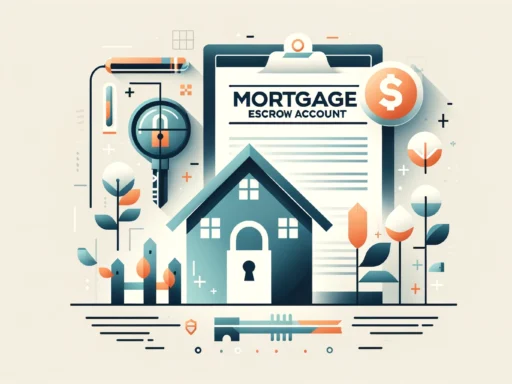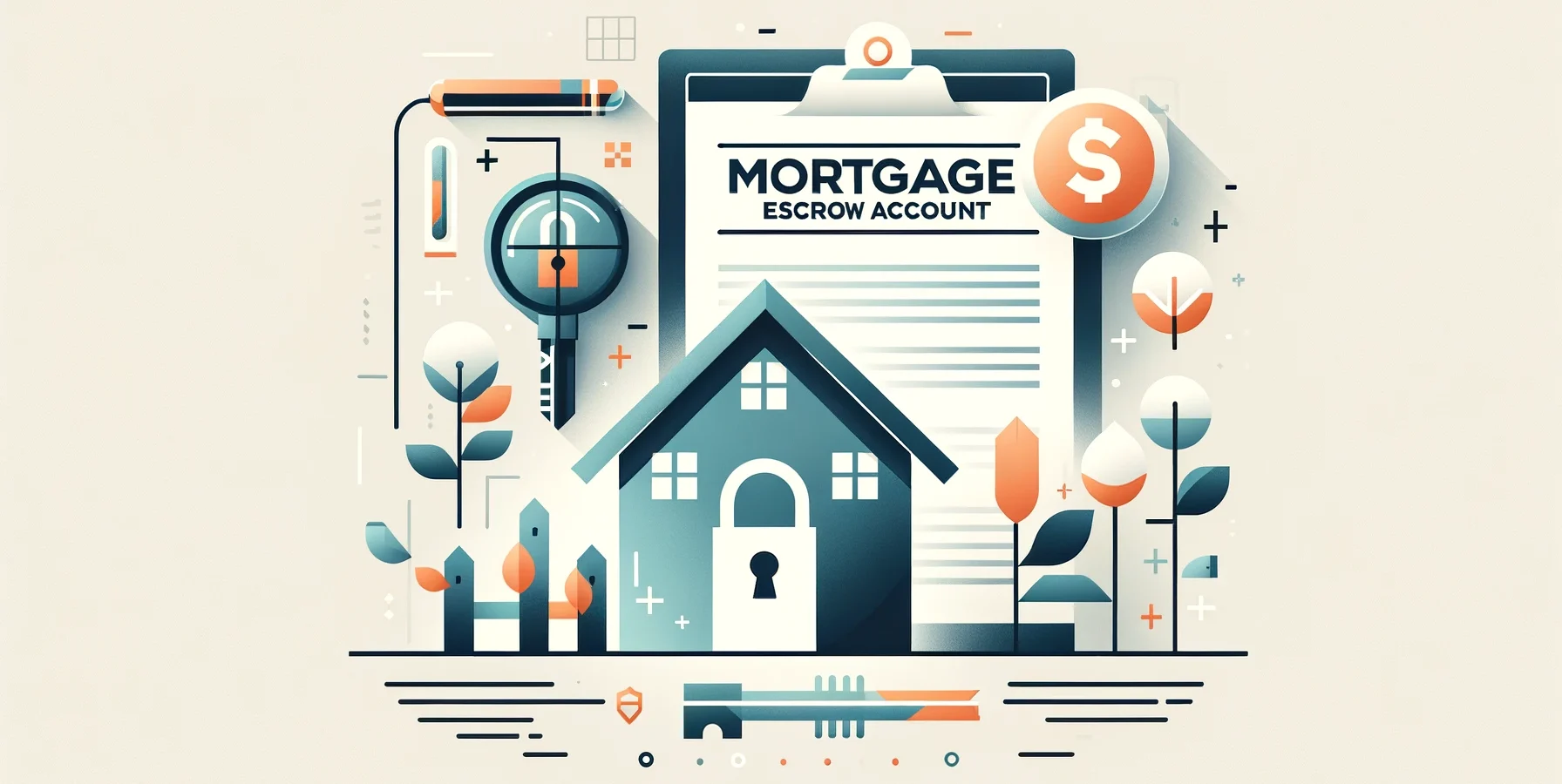One of the most important financial matters for the owner of the property is the regulation of the must-read guide for every property owner. So that the state and local government of the property do not become a burden and that the users of the house are informed about the actual accounts, the property owner should be able to at least see the records individually, but the presence of the property owner is the one who performs the payment of the bills. An act of God affecting an insured building is an example of a scenario that demonstrates the necessity of maintaining an escrow account.
Understanding Mortgage Escrow Accounts
For a better understanding of what an escrow account is in the mortgage world, let’s ask the very first question: “What is an escrow account in a mortgage?” It is an account for holding money managed by the lender from which your lender takes a definite amount from your monthly mortgage payment to cover the taxes and the insurance for the house. Through such an arrangement, the homeowner and the lender will have the peace of mind that these essential bills are not forgotten and are paid punctually in a synergistic way, further highlighting the importance of these accounts in real estate transactions.
The Pros of Keeping Your Mortgage Escrow Accounts
Most homeowners recognize the value of an escrow account, which allows them to have less worry and more control. They are mostly attracted to escrow accounts because:
Convenience: Having to deal with a single monthly bill that includes mortgage, taxes, and insurance pay isn’t a thing of great difficulty to manage budget-wise.
No Late Fees: The lender is obliged to ensure timely payments, meaning that you don’t have to pay for the late charges caused by the uninsured tax or insurance.
Why Some Homeowners Say Goodbye to Mortgage Escrow Accounts
Despite the advantages, many homeowners decide to stop their escrow accounts for the following reasons:
Interest Earnings: The money in the escrow account typically earns little to no interest. Homeowners can take these funds, HYSAs, or other interest-bearing accounts and deposit them into a High-Yield Savings Account (HYSA) to manage their cash themselves.
Control Over Payments: Sometimes, paying taxes and insurance directly can lead to discounts or provide an opportunity to earn rewards through credit card payments. The benefits of notarized closing disclosures in real estate negotiations: A Reddit discussion by homeowners offered new insights into the situation with escrow management. The drawbacks and challenges of escrow management were also unveiled, namely, hidden interest rate escrow account refusals, unfair fees, and restrictions.
Real-World Challenges of Escrow Management
Due to numerous reasons, it is pretty apparent how the lender’s striving can dig the pit that a borrower has to fall into:
Escrow Mismanagement: Instances of mortgagors who did not make their payments on time or mismanaged them have cast the potential negative aspects of escrow in a harsh light.
Fees and Restrictions: Escrow accounts may be removed or restricted by some lenders, for example, by charging fees, which can make it difficult for the borrower to make changes to their personal time and interest.
The Financial Nuances of Mortgage Escrow Accounts
Unexpected Fees: Such a situation was described by homeowners who were unaware of and required to pay fees that violated their trust, even beyond their means.
Interest Rate Opportunities: By joining accounts with higher interest rates, homeowners will be able to see the rewards above.
Navigating the Escrow Account Maze
You are to decide if you would like to keep the account open or close it; this matter has to be given considerable deliberation.
Assess Your Financial Discipline: Are you willing to save money and be responsible for making the tax and/or insurance payments on time without the escrow account’s convenience?
Understand Your Mortgage Servicer’s Policies: There are differences in adopting escrow policies, which can have an impact due to various lender opinions on escrow accounts that one can choose. It is essential to know the current status of your account,” explains important points about your lender and escrow.
The Community Speaks: Insights from the Reddit Thread
The thread was a source of numerous valuable pieces of advice and practical life stories, ranging from the frustration of dealing with escrow mismanagement to the happiness of receiving interest on deposits. The vote? While escrow accounts are a bit easier, paying your taxes and insurance can be a good financial choice for the diligent homeowner.
Expert Tips for Managing Without a Mortgage Escrow Account
For those who are inclined to close the title and escrow account, there are some hints:
Set Up Automatic Savings: Have a portion of your salary automatically transferred to a special bank account for money intended for taxes and insurance.
Stay on Top of Payment Deadlines: Use a calendar to keep track of your payment schedule, ensuring you never miss a payment due date again.
The Final Verdict: Is Closing Your Mortgage Escrow Accounts Right for You?
The decision to close an escrow account should not be taken lightly–it provides an opportunity to earn additional income. It offers more flexibility in money management, but at the same time, it requires the person to be more organized and disciplined.
Leveraging BlueNotary for Your Title and Escrow Needs
Although we have thoroughly examined the minute details of mortgage escrow accounts, it is essential to highlight how BlueNotary’s innovative platform seamlessly integrates the various elements of title and escrow services. Here is how our platform can transform your real estate transactions easing with BlueNotary
Simplifying Real Estate Transactions with BlueNotary
Digital Notarization for Contracts: BlueNotary not only brings the notarization process to the digital age but also allows you to e-sign all your real estate contracts online. You can carry out various activities, such as title transfers and escrow agreement alterations, with the help of a notary. Through our platform, the byword is safe, fast, and legally binding processes, all in the comfort of your home or office.
The BlueNotary Advantage in Title and Escrow
Streamlined Procedures: Our tool facilitates the title and escrow process, streamlining it and making it the most convenient. We offer notarization services through electronic tools to bring convenience to you, saving you time and simplifying the complexities of real estate transactions.
Better Security and Regulation: When you choose BlueNotary, be assured that your data is always safe. Our platform incorporates the most recent regulatory rules, ensuring legal online notarization and enhanced data security.
Convenience and Accessibility: Handling a contract online with notary services no longer restricts one due to physical location or in-person meetings, and it can be verified from the comfort of one’s own home. This feature is vital to professionals who are always on the go, and hence, it benefits not only those involved in the escrow and title process but also property owners.
Empowering Homeowners and Professionals Alike
BlueNotary’s platform aims to empower property agents and owners by providing an easy, secure, and efficient method for handling escrow and title transactions. Whether you are a buyer closing on a new house or authorizing multiple real estate deals, our digital notarization services are the perfect solution to satisfy your every need and more.
Conclusion
Getting into the world of mortgage escrow accounts is one of the smart steps toward being a wise and responsible householder. BlueNotary ensures that the entire property purchase process is less taxing for the purchaser and more empowering for the buyer himself. Personalization of the title and escrow paperwork was done using electronic notarization. Just like it is straightforward, safe, and tailored to your needs at every stage, let’s go on a journey to abolish old-fashioned real estate management together. Find the difference BlueNotary is bringing about and reach out to a future that guarantees all activities related to real estate are safe and secure. If you want to learn more about how notarization is a crucial process in real estate, check out how notarization adds certainty to real estate transactions and the future of notarization in the title and escrow industry.
General Questions About Mortgage Escrow Accounts
What factors determine a homeowner’s eligibility to opt out of an escrow account?
Usually, based on credit score, loan-to-value (LTV) ratio, and timely payment of installments, lenders are very prudent in verifying that homeowners are financially stable and can complete their tax and insurance work on time.
How does the process of closing an escrow account work?
The homeowner submits a letter to their lender, qualifies for cancellation, and then keeps their loan officer or a representative informed throughout the process of money disbursement.
Are there any long-term impacts on mortgage rates or terms if a homeowner decides to close their escrow account?
Your loan and payments to the mortgage usually remain unchanged, but the potential risk is visible to the bank, which may lead to the bank modifying the rate or charging fees as a result of the risk.
What are the specific legal protections or implications when using a digital platform like BlueNotary for managing escrow and title services?
Systems are fully compliant with the legal frameworks of ESIGN and UETA, confirming the legality of e-signatures and their robust security. However, the community must check local regulations.








